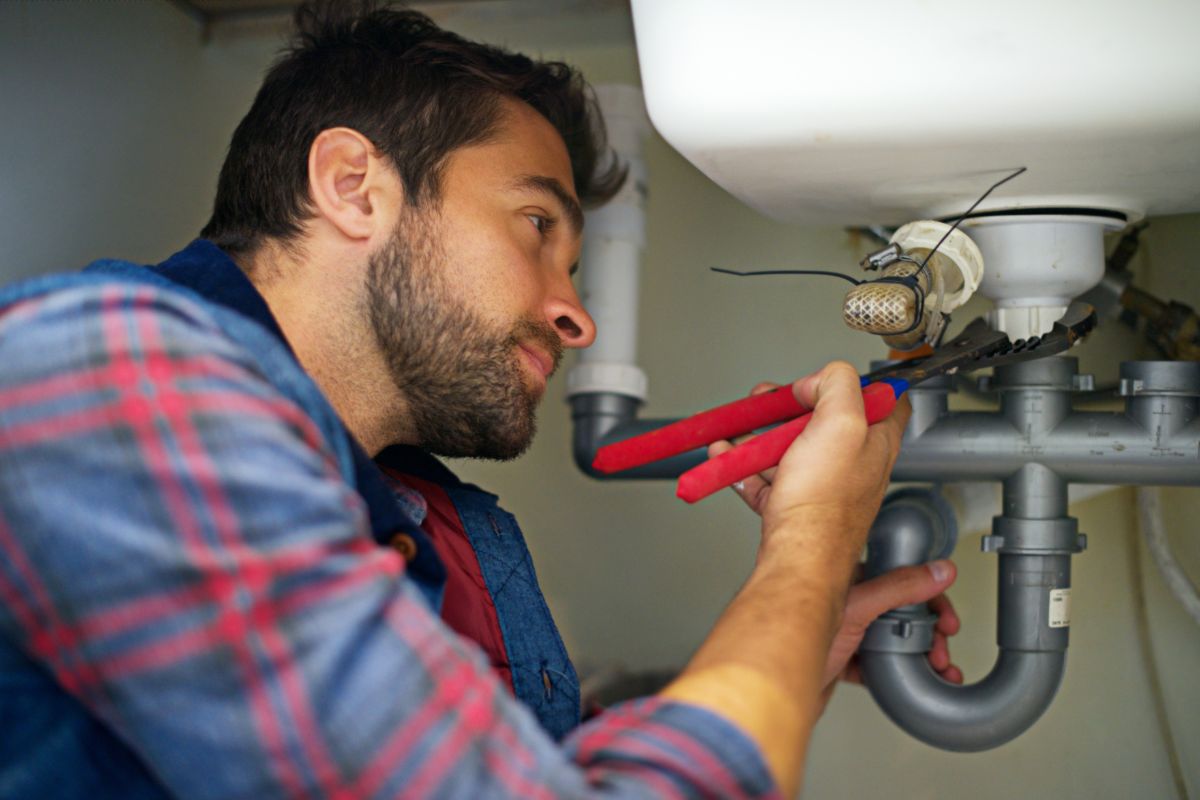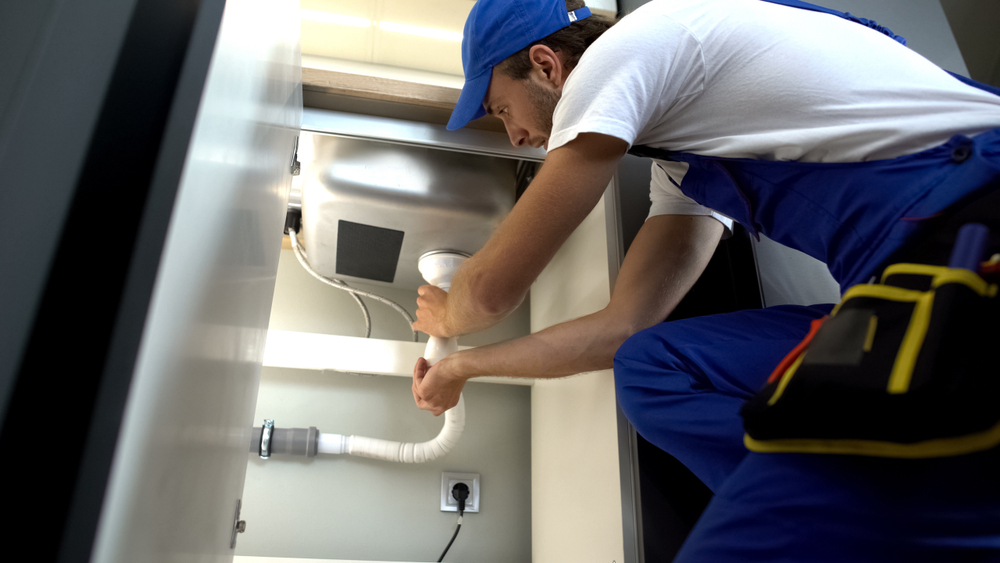Addressing Emergency Plumbing Problems: Fast Fixes Until Professional Help Arrives
Addressing Emergency Plumbing Problems: Fast Fixes Until Professional Help Arrives
Blog Article
What are your thoughts and feelings on Plumbing Emergencies: Tips on What To Do Before?

Pipes emergencies can strike any time, creating tension and prospective damages to your home. Whether it's a burst pipeline, a clogged drainpipe, or a leaky faucet, recognizing how to manage the situation until a professional plumbing professional arrives can save you from further complications. This short article provides vital emergency plumbing suggestions to aid you minimize damages and gain back control during a pipes situation.
Switch off the Supply Of Water
The primary step in any kind of pipes emergency is to shut down the supply of water. For local concerns, such as a dripping tap or commode, turn off the valve near the fixture. In the case of a major leak or ruptured pipeline, find your home's major water shut-off shutoff and transform it off immediately. Knowing the location of these valves beforehand can conserve useful time throughout an emergency situation.
Address Tiny Leakages with Short-term Fixes
Small leaks can rapidly come to be significant problems if left unchecked. Utilize these momentary repairs up until expert help arrives:
While these fixes aren't permanent, they can aid lessen water loss and damage.
Unclog Drains Pipes Securely
A clogged up drain can be an irritating and unpleasant problem. Here's exactly how to tackle it:
If these approaches don't function, avoid making use of excessive force, as it may get worse the obstruction.
Take Care Of Overflowing Toilets
An overflowing bathroom can create immediate disorder. Here's what you should do:
Turn off Your Hot Water Heater
In particular emergencies, such as a burst pipe, it's smart to shut down your hot water heater. This prevents overheating or damage to the system when water quits moving. Switch off the power supply to the hot water heater (electrical or gas) and let it cool down to avoid prospective dangers.
Momentarily Quit a Ruptured Pipeline
A ruptured pipeline can cause considerable water damage in minutes. To alleviate the problem:
Call an expert plumbing immediately to attend to the trouble completely.
Deal With Frozen Pipeline Carefully
In cooler environments, frozen pipes are a typical emergency. If you suspect an icy pipeline:
Prevent More Damages
Taking quick action to decrease damages can save you money and time over time. Here's just how:
. Have an Emergency Pipes Kit
Prepare a standard plumbing emergency set to handle small problems effectively. Your set needs to include:
Having these devices available can make a substantial difference in your capacity to manage emergency situations.
Know When to Call a Professional.
While quick fixes can assist temporarily, specific pipes problems call for immediate specialist attention. Call a plumbing technician if:.
Immediately speaking to a professional guarantees the problem is solved appropriately and protects against further complications.
Final thought.
Plumbing emergencies can be frustrating, however with the best understanding and tools, you can handle the circumstance properly until assistance shows up. By switching off the water supply, dealing with little leakages, and making use of temporary fixes, you can lessen damages and maintain your home safe. Bear in mind, these tips are short-term services; constantly get in touch with a qualified plumber to deal with the source of the issue. Prep work and fast reasoning are your ideal allies in any kind of pipes emergency situation.
8 Helpful Tips for Managing Plumbing Emergencies at Home
If your plumbing system hasn’t failed once, wait for it because almost everyone has a story to tell. Sometimes, it could be simple emergencies such as a leaking pipe, a blocked cistern, or even a big burst pipe. In situations like this, you need to have some handy tips to save you some money and from possible damages.
Take care of minor issues early.
Sometimes, you could have avoided an emergency by taking proactive measures while it was still early. Some major plumbing emergencies can be a result of an ignored minor issue. We recommend that you have items like plumbing tapes and other related items. A plumbing tape can allow you to manage minor leaks before the plumber arrives.
Cut off the water supply.
This tip is essential in almost any type of leakage problem. For problems like minor leakages in the toilet or kitchen, turn off the supply that takes water to the affected pipes. If the leakage is a major pipe, you must shut off the supply valve to the entire building. This will help you avoid flooding your home and neighbors if you share a flat.
Know your plumbing system
Folks typically move into a new apartment without understanding the water supply around the building. This can prove disastrous if a water emergency arises and the plumber is far away. The previous tip will prove useless if you don’t practice this one. More importantly, know where your water shut-off valve is located – you’ll need that knowledge to prevent potential home floods.
Have some common handy tools
There are lots of plumbing emergencies that you can handle without hiring a plumber. That’s why you must keep some tools available always. Some tools that you can use to fix simple plumbing emergencies easily include plumbing tapes, screwdrivers, thread seal tapes, plungers, pliers, tape measures, and rubber gloves.
Insulate your pipes from cold
You’ll save yourself from many plumbing expenses if you protect your water pipes from the cold. This is because of the harmful effects that cold weather can have on your pipes. During winter, your pipes can burst from being overly expected to freezing temperatures. So, make sure insulators are there to keep the pipes working correctly.
Avoid practices that will clog your toilet.
Many people indulge in practices that can damage the plumbing system of the entire building. One of these is when they use their toilet to dispose-off garbage. They flush all kinds of things, such as paper towels, bandages, hairs, female sanitary products, etc., down the toilet. This will block your toilet in the long run, incurring unnecessary expenditures. Dump such waste in the trash instead.
Check your dials regularly.
Sometimes, there could be leakages in your home without noticing them in time. So, constantly monitor your water meter dial. If the dial is reading when there is nobody using water, this is an indicator that there is leaking. Check for leaks immediately. Call a plumber as soon as possible if you can’t find any.
https://www.constructionplacements.com/8-helpful-tips-for-managing-plumbing-emergencies-at-home/

I hope you enjoyed our excerpt on Expert Tips for Emergency Plumbing Repairs. Thanks so much for taking the time to browse our short article. Sharing is good. Helping others is fun. I praise you for your time. Come back soon.
Schedule Service Now Report this page